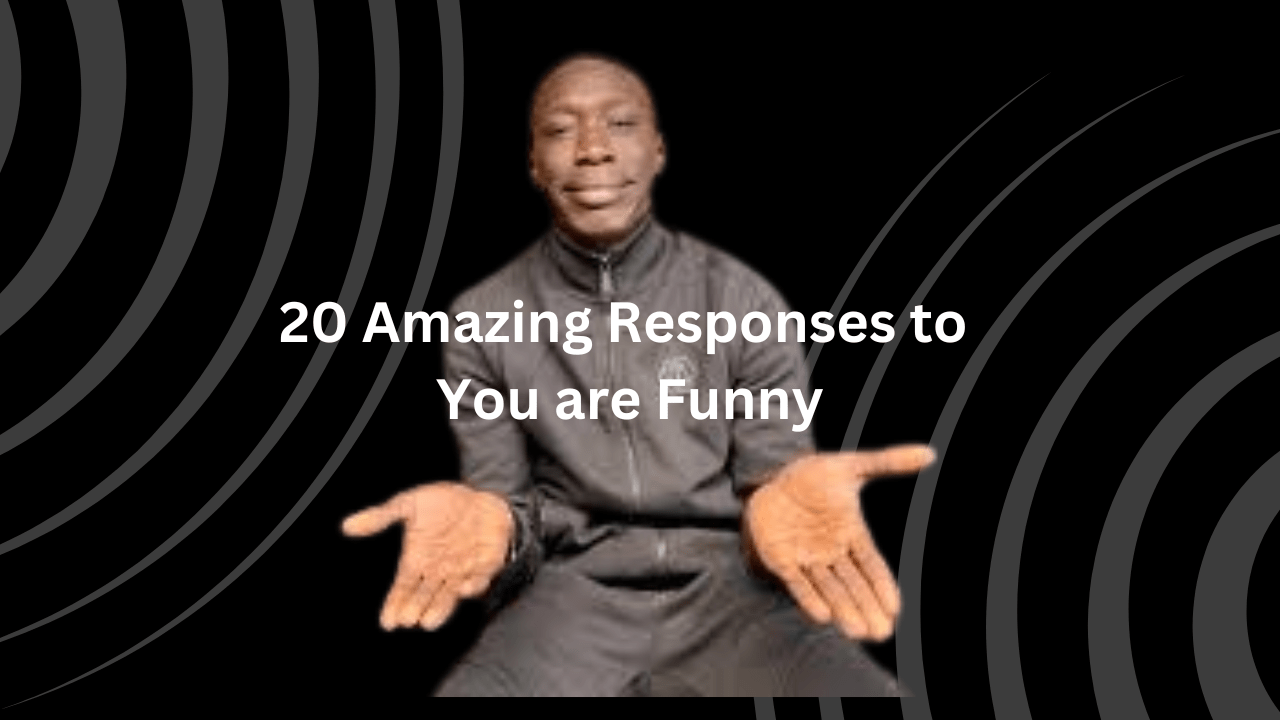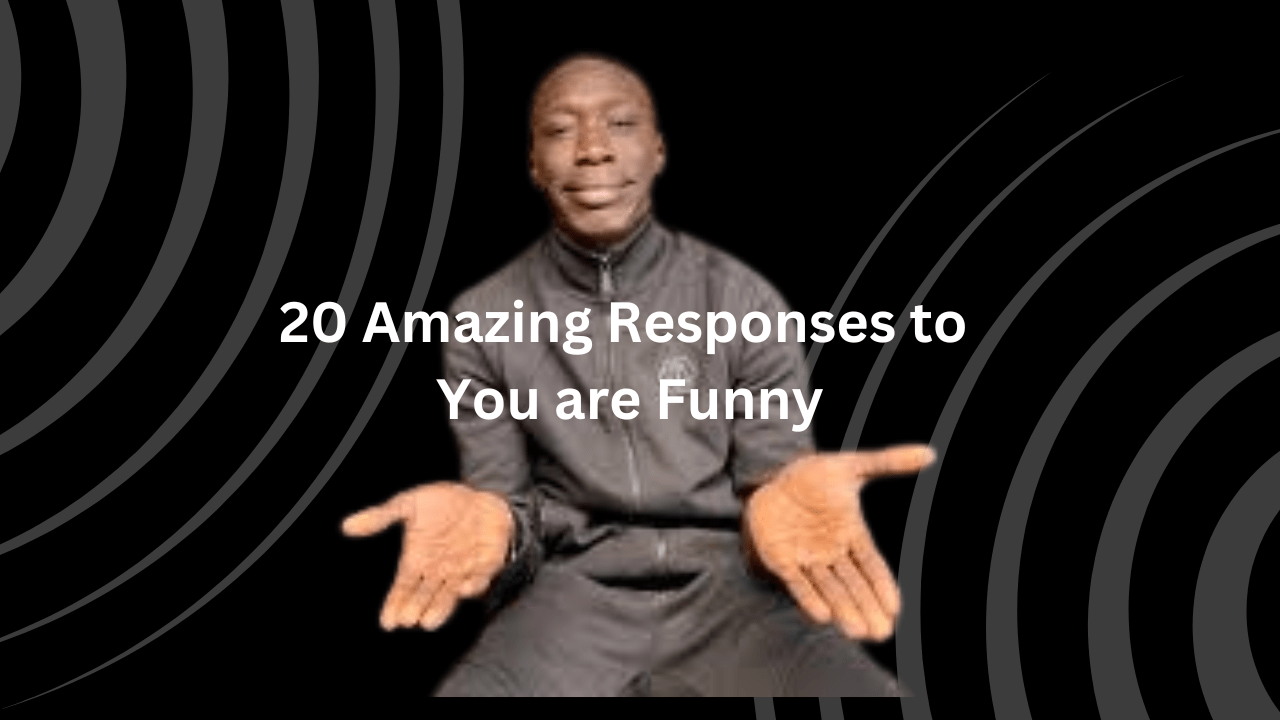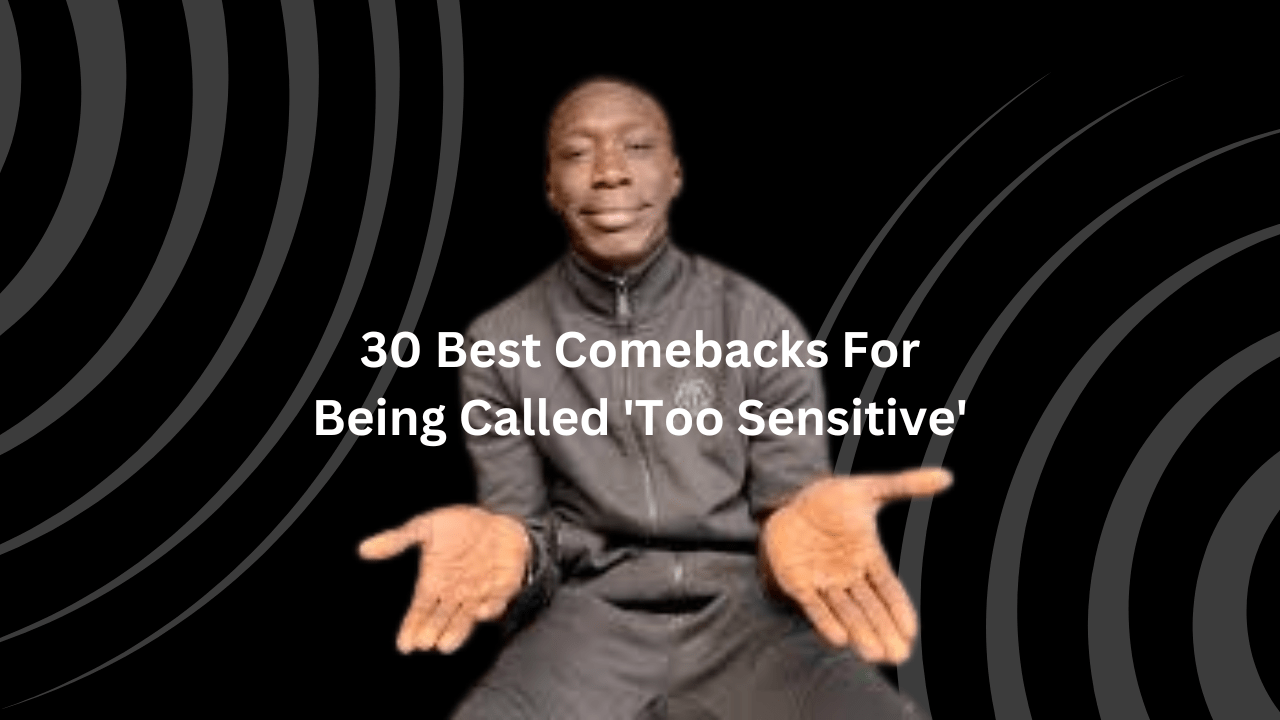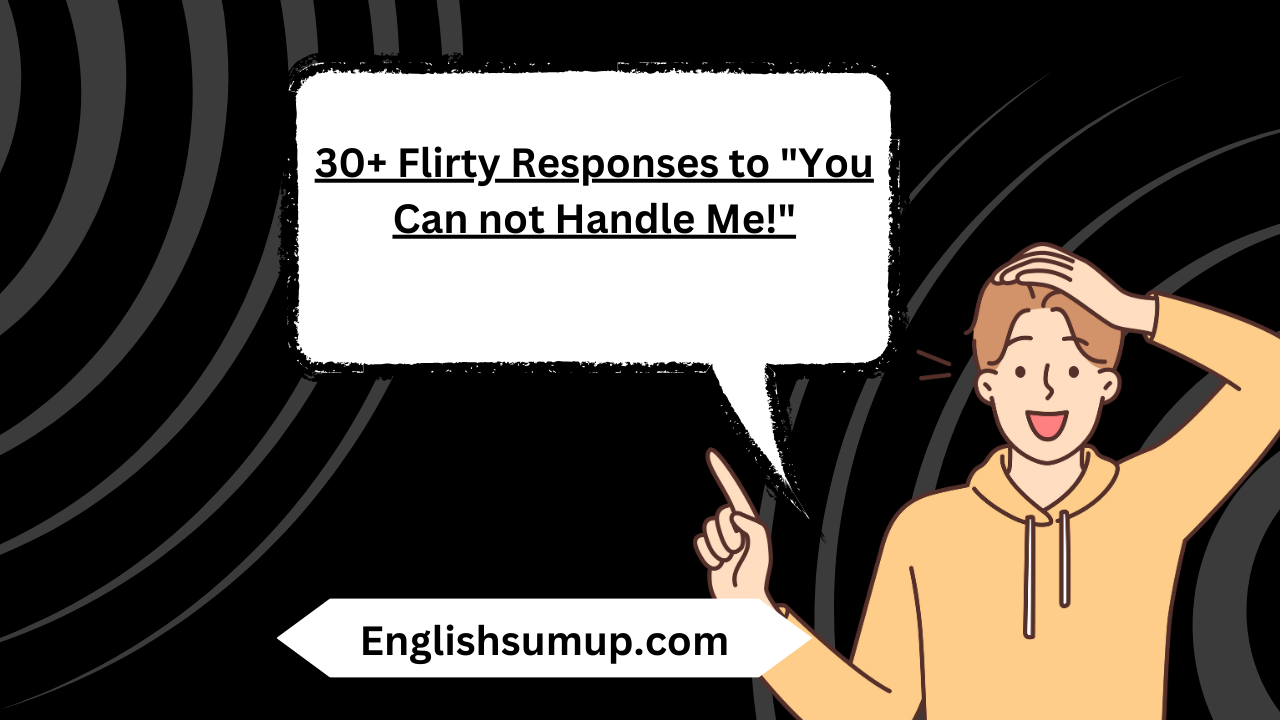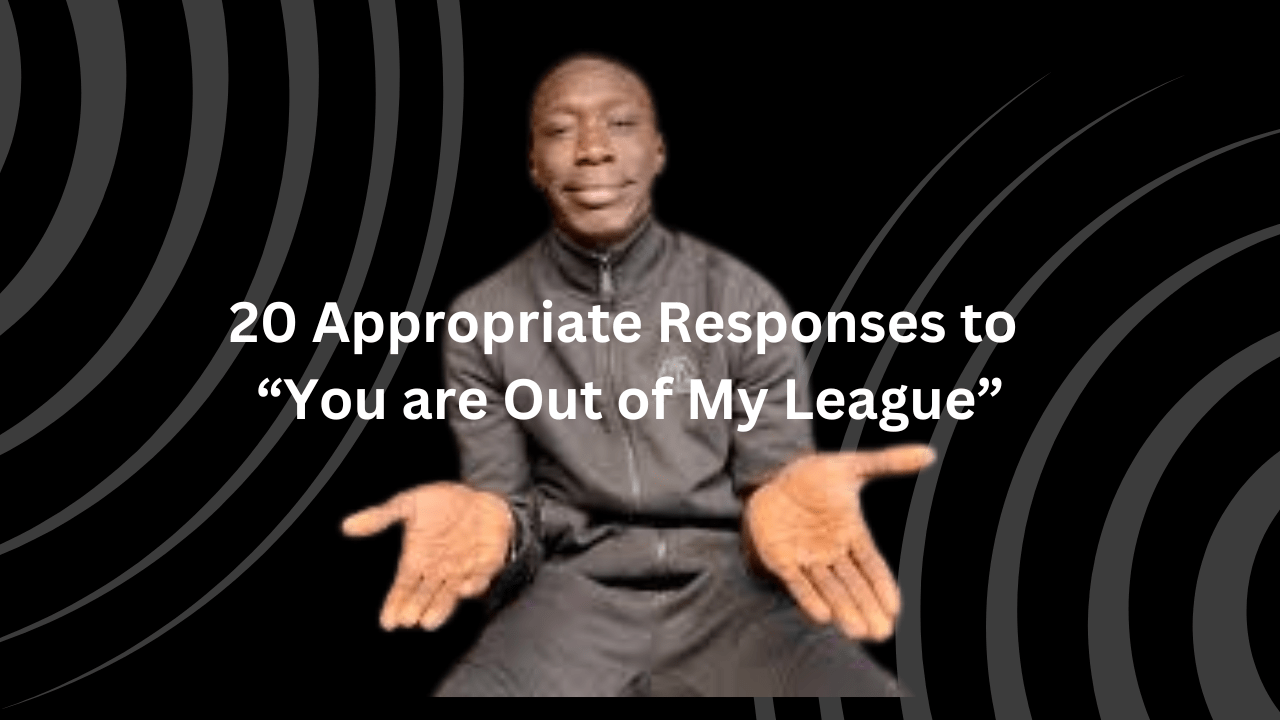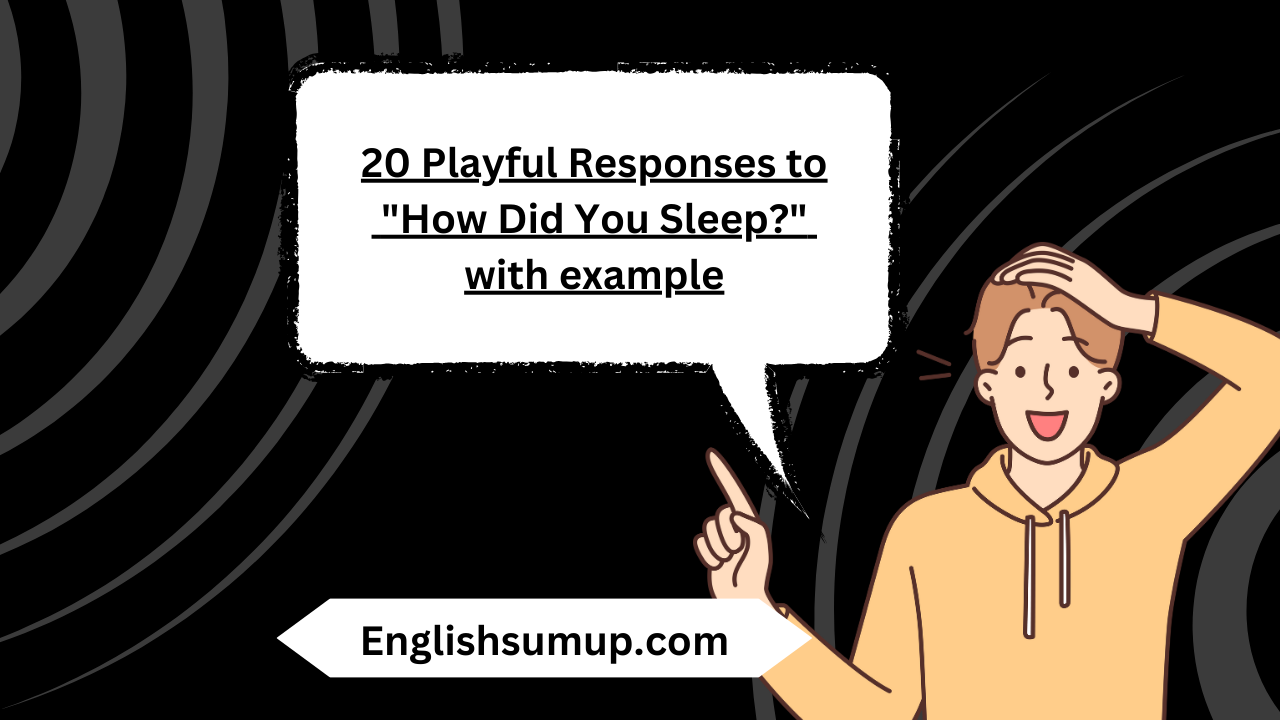Engaging in the delicate art of reciprocating compliments presents a unique social challenge, akin to navigating a nuanced dance.
When met with the phrase, “You are making me blush!”, it serves as an unmistakable signal that your words have left a lasting impression.
This moment is imbued with a sense of charm, flattery, and vulnerability, making your response pivotal in either enhancing the interaction or stalling its momentum.
In this article, we offer an array of witty and considerate responses to gracefully sustain the enchanting exchange when you’ve succeeded in eliciting a blush from someone.
Here are 30 response to you are making me blush

“Oh, I must be doing something right then!”
This response acknowledges the impact of your words while expressing a sense of satisfaction. It implies that the speaker’s intention was to elicit a positive reaction, and the fact that they succeeded brings a feeling of accomplishment. By attributing the blush to their own actions, the speaker also maintains a humble tone.
“Just returning the favor of your radiant smile.”
This response reciprocates the compliment with a charming acknowledgment of the other person’s demeanor. It implies that the speaker’s own happiness or positivity is a reflection of the positive energy they receive from the other person. By using the word “radiant,” the speaker emphasizes the brightness and warmth of the other person’s smile.
“Blushing is just nature’s way of painting a smile on my face.”
This light-hearted response adds humor to the situation while appreciating the compliment. It compares the act of blushing to the natural process of painting, suggesting that the blush is a spontaneous and involuntary reaction to the other person’s words. By attributing the blush to nature, the speaker downplays any self-consciousness and embraces the moment with whimsy.
“I’m just reflecting your warmth back to you.”
This response acknowledges the positive energy of the other person and reflects it back with gratitude. It suggests that the blush is a response to the warmth and kindness of the other person’s words or actions. By using the word “reflecting,” the speaker emphasizes the reciprocal nature of the interaction, highlighting the mutual appreciation between them.
“Well, your compliments have that effect on me!”
This response playfully suggests that the other person’s words have a special power to evoke a blush. It implies that the speaker’s reaction is directly linked to the compliments they receive from the other person. By attributing the blush to the impact of the other person’s words, the speaker flatters them in return, creating a sense of mutual admiration.
“You’re not so bad yourself!”
This response lightens the mood and reciprocates the compliment with a touch of humor. It implies that the speaker considers the other person equally praiseworthy, creating a sense of equality and camaraderie between them. By playfully deflecting the compliment back to the other person, the speaker acknowledges their own positive feelings while also boosting the other person’s confidence.
“I guess your words hit me right in the feels!”
This response humorously attributes the blush to the impact of the other person’s words. It suggests that the compliments or kind words from the other person have stirred up emotions or touched the speaker on a deeper level. By using the colloquial phrase “hit me right in the feels,” the speaker emphasizes the emotional resonance of the interaction, creating a sense of shared vulnerability and connection.
“Well, I can’t help it when you say such nice things!”
This response acknowledges the effect of the other person’s words while maintaining a playful tone. It implies that the speaker’s reaction is beyond their control, attributing the blush to the kindness or flattery of the other person. By expressing a lack of control over their own response, the speaker conveys a sense of vulnerability and sincerity, deepening the connection between them.
“Consider it my way of showing appreciation for your kindness.”
This response expresses gratitude for the compliment while highlighting the value of the other person’s kindness. It implies that the blush is a genuine and heartfelt response to the other person’s positive words or actions. By framing the blush as a form of appreciation, the speaker emphasizes the significance of the other person’s kindness in their lives, fostering a sense of mutual respect and admiration.
“Well, I guess my cheeks wanted to join the conversation too!”
This response playfully suggests that your cheeks are reacting to the positive interaction. It adds a touch of humor to the situation by anthropomorphizing the speaker’s cheeks and implying that they have a mind of their own. By attributing the blush to their cheeks, the speaker deflects attention away from themselves and creates a lighthearted atmosphere, encouraging further interaction and banter.
“You’re too kind, it’s bringing out my shy side.”
This response acknowledges the kindness of the other person while playfully attributing the blush to a sense of shyness or modesty. It suggests that the speaker is not accustomed to receiving such flattering compliments, adding a touch of humility to the interaction. By expressing a shy side, the speaker creates an opportunity for the other person to continue the conversation with reassurance and encouragement.
“I think it’s your charisma rubbing off on me.”
This response compliments the other person’s charisma while attributing the blush to their captivating presence. It implies that the speaker’s reaction is a result of being influenced by the charm or magnetism of the other person. By praising the other person’s charisma, the speaker acknowledges their positive impact and creates a sense of mutual admiration and attraction.
“Well, I guess my cheeks decided to join the conversation too!”
This playful response humorously suggests that the speaker’s cheeks are responding to the interaction. It implies that the blush is an involuntary reaction to the engaging conversation or flattering words of the other person. By personifying their cheeks and attributing the blush to them, the speaker lightens the mood and creates a sense of shared amusement.
“I’m blushing brighter than a tomato right now!”
This humorous response exaggerates the intensity of the blush for comedic effect. It implies that the speaker’s cheeks are flushed with embarrassment or bashfulness, emphasizing the impact of the other person’s words. By likening the blush to the bright color of a tomato, the speaker adds a vivid visual image to the conversation, eliciting laughter and further engagement.
“Your words have turned me into a human thermometer!”
This witty response compares the speaker’s blush to a thermometer measuring their level of warmth or excitement. It implies that the other person’s words or actions have caused a noticeable change in the speaker’s emotional state. By using humor to describe the blush as a form of temperature gauge, the speaker adds an element of playfulness to the interaction, inviting the other person to join in the fun.
“I’m afraid I’m not as composed as I’d like to be right now.”
This response acknowledges the speaker’s lack of composure in the face of the other person’s compliments. It implies that the speaker is feeling flustered or disarmed by the positive attention, adding a touch of vulnerability to the interaction. By expressing a desire for composure, the speaker signals their appreciation for the other person’s words while also conveying a sense of humility.
“You’re too kind, I’m beginning to feel like a walking compliment!”
This response humorously suggests that the speaker is becoming overwhelmed by the other person’s praise. It implies that the constant stream of compliments is having a noticeable effect on the speaker’s self-esteem or confidence. By likening themselves to a “walking compliment,” the speaker adds a playful twist to the interaction, encouraging further banter and camaraderie.
“I think you’ve officially mastered the art of flattery!”
This response playfully acknowledges the other person’s skill in delivering compliments. It implies that the speaker is impressed by the other person’s ability to evoke a blush with their flattering words or gestures. By praising the other person’s “art of flattery,” the speaker creates a sense of mutual admiration and camaraderie, fostering a positive and playful interaction.
“Well, I wasn’t expecting to turn into a human thermometer today!”
This humorous response expresses surprise at the intensity of the blush in reaction to the other person’s words. It implies that the speaker is caught off guard by their own reaction, adding a touch of spontaneity to the interaction. By using humor to describe the blush as a sudden transformation, the speaker lightens the mood and invites further laughter and engagement.
“Your compliments have me feeling like the star of my own rom-com!”
This playful response compares the speaker’s experience to being the protagonist in a romantic comedy film. It implies that the other person’s compliments or actions have created a lighthearted and romantic atmosphere, akin to a movie scene. By using humor to describe the situation as a “rom-com,” the speaker adds a whimsical touch to the interaction, eliciting smiles and laughter from both parties.
“You’re turning me into a human rose.”
This metaphorical response likens the speaker’s blush to the delicate petals of a rose flower. It suggests that the other person’s words or actions have elicited a gentle, rosy flush on the speaker’s cheeks, evoking an image of beauty and vulnerability. By comparing themselves to a rose, the speaker adds a poetic and romantic dimension to the interaction, inviting the other person to appreciate their vulnerability and sincerity.
“I feel like I just stepped into a spotlight!”
This metaphorical response compares the attention and praise from the other person to being illuminated by a bright spotlight. It implies that the speaker feels exposed or vulnerable under the intense focus of the other person’s admiration. By using humor to describe the situation as stepping into a spotlight, the speaker lightens the mood and invites further banter and camaraderie.
“You’ve got a talent for turning cheeks into rosy canvases.”
This compliment acknowledges the other person’s skill in evoking a blush from the speaker. It implies that the other person possesses a unique ability to elicit genuine reactions and emotions from those around them. By praising the other person’s “talent,” the speaker fosters a sense of appreciation and admiration, deepening the connection between them.
“I’m starting to think you have a secret blush-inducing superpower.”
This playful response humorously suggests that the other person possesses a hidden ability to make people blush with their words or actions. It implies that the speaker is both amused and impressed by the other person’s uncanny knack for evoking genuine reactions. By attributing the blush to a “superpower,” the speaker adds an element of whimsy and intrigue to the interaction, sparking curiosity and further conversation.
“You’re making my cheeks feel like they’re on vacation in the tropics!”
This metaphorical response compares the warmth and flush of the speaker’s cheeks to the balmy climate of a tropical vacation destination. It implies that the other person’s words or actions have created a sensation of warmth and relaxation, akin to basking in the sun on a tropical beach. By using humor to describe the sensation as a “vacation,” the speaker adds a playful and lighthearted tone to the interaction, inviting the other person to share in the enjoyment.
“I’m starting to feel like I should be sponsored by a blush makeup brand!”
This humorous response jokingly suggests that the intensity of the blush warrants sponsorship from a makeup brand specializing in blush products. It implies that the speaker’s cheeks are so flushed with color that they resemble the effects of blush makeup. By using humor to exaggerate the situation, the speaker adds a playful and self-deprecating element to the interaction, eliciting laughter and further engagement.
“You’re turning me into a walking emoji!”
This playful response compares the speaker’s flushed cheeks to the blushing emoji commonly used in text messages and social media. It implies that the other person’s words or actions have elicited a response similar to the blushing emoji, conveying a mix of shyness, embarrassment, and flattery. By referencing the emoji, the speaker adds a contemporary and light-hearted touch to the interaction, inviting further conversation and connection.
“I think my cheeks are auditioning for a role in a romantic comedy!”
This humorous response suggests that the intensity of the blush could qualify the speaker’s cheeks for a role in a romantic comedy film. It implies that the other person’s words or actions have created a scene reminiscent of the charming and romantic moments often depicted in movies. By using humor to describe the situation as a film audition, the speaker adds a whimsical and theatrical element to the interaction, inviting laughter and further engagement.
“If blushing were an Olympic sport, I’d be taking home the gold!”
This humorous response humorously exaggerates the intensity of the blush by likening it to winning a gold medal in an Olympic sport. It implies that the speaker’s flushed cheeks are a testament to the other person’s ability to evoke genuine reactions and emotions. By using humor to describe the blush as a competitive achievement, the speaker adds a playful and light-hearted tone to the interaction, eliciting laughter and further camaraderie.
“You’re like a magician—making blushes appear out of thin air!”
This metaphorical response compares the other person’s ability to evoke a blush to the skill of a magician performing tricks. It implies that the speaker is both impressed and amused by the other person’s ability to elicit genuine reactions and emotions with their words or actions. By likening the other person to a magician, the speaker adds a sense of wonder and admiration to the interaction, sparking curiosity and further conversation.




